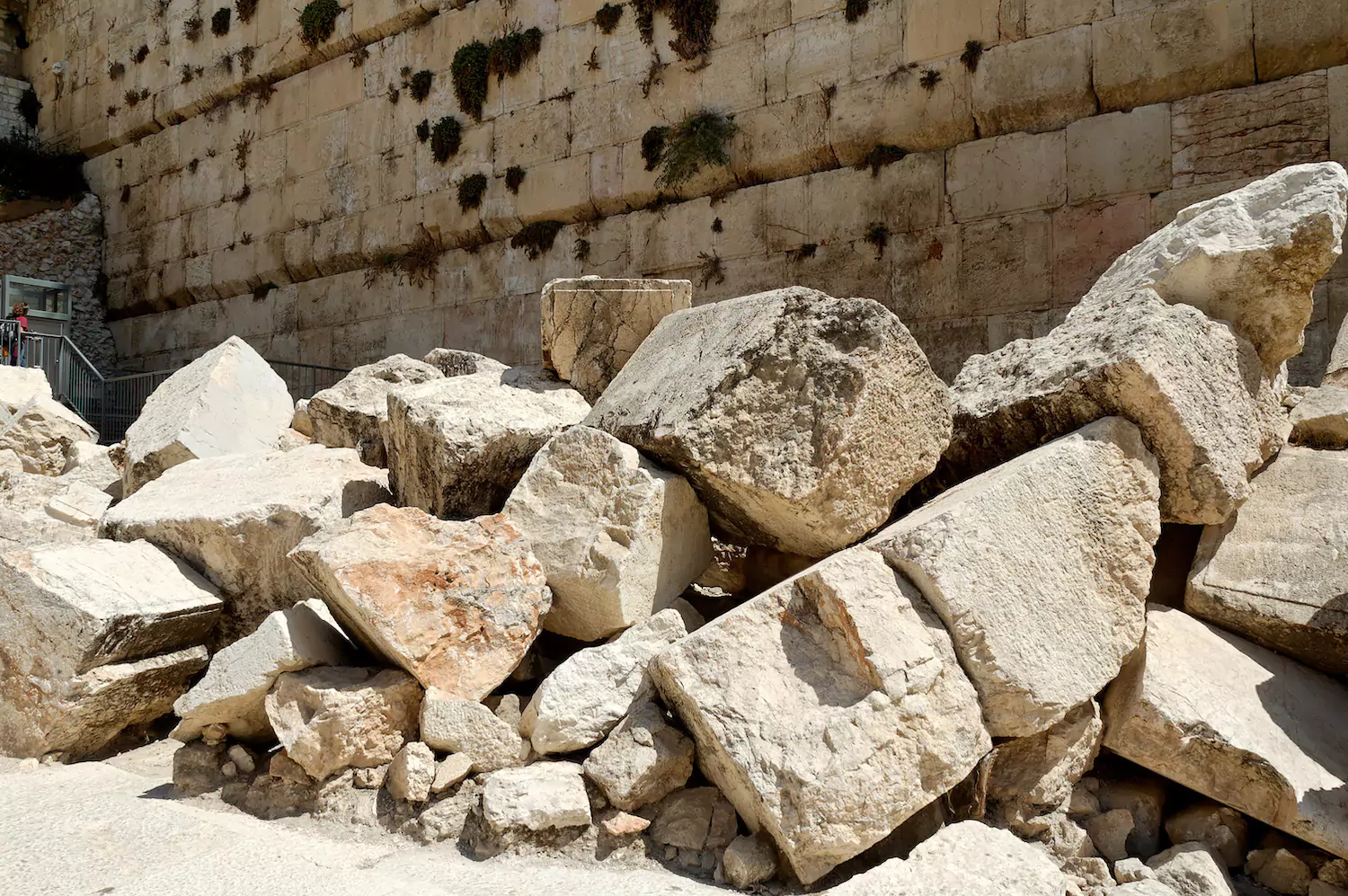2024 Passion Week Devotional, Day 3: All You Can Do is Share the Gospel
Tuesday
The Fig Tree and Mountain-Moving Faith
The next day, Tuesday of Passion week, Jesus and the disciples pass by the fig tree Jesus has cursed the day before on their way back into Jerusalem (Matt. 21:20–22; Mark 11:20–26). Peter, as usual acting as the spokesman of the disciples, points out to Jesus that the fig tree has withered. In response, Jesus asserts that anyone who doesn’t doubt but believes in God will be able to move spiritual mountains through prayer as long as they forgive others as their heavenly Father has forgiven them.
Challenges to Jesus’ Authority
As Jesus and the disciples arrive at the temple in Jerusalem, people are there early to hear Jesus teach (Luke 21:38). The chief priests, scribes, and elders promptly come and challenge Jesus. They are in charge of the temple area, so they ask, “By what authority are you doing these things, or who gave you this authority to do them?” (Mark 11:28), likely referring to Jesus’ cleansing of the temple the day before. Rather than answering them directly, Jesus asks them a counter-question: “Was the baptism of John from heaven or from man?” (Mark 11:30). After some deliberation, they opt out and reply that they don’t know.
At this, Jesus tells the Jewish leaders a series of parables, beginning with the parable of the two sons who were to work in their father’s vineyard (Matt. 21:28–32). The first, symbolizing non-Jews, was resistant at first but subsequently went ahead, while the second, representing the Jews, initially agreed but didn’t follow through. Similarly, in the parable of the tenants in the vineyard (Matt. 21:33–44; Mark 12:1–11; Luke 20:9–18), they mistreated or even killed a series of servants the owner sent to them. When, at last, the owner sends his beloved son, the heir, rather than showing him respect, the tenants kill him, thinking they can arrogate his inheritance. In this thinly veiled characterization of the leaders of Israel, Jesus denounces them and prophesies that God will take the stewardship away from them and give it to others, that is, non-Jews. Finally, in the parable of the wedding feast (Matt. 22:1–14), a king sent his servants to invite people to a wedding, but they all made excuses, and some even mistreated his servants. So the servants invited others. Again, the message is plain: the Jews have rejected the Messiah, so God invites non-Jews instead.
At this, Jesus’ opponents pepper him with more questions, starting with: “Is it lawful to pay taxes to Caesar, or not?” (Matt. 22:15–22; Mark 12:12–13; Luke 20:19–20). Jesus, knowing their question is insincere, tells them to give “to Caesar the things that are Caesar’s, and to God the things that are God’s.”
The Sadducees, who don’t believe in the resurrection, take their turn and test Jesus with a trick question (Matt. 22:23–33; Mark 12:18–27; Luke 20:27–40). Whose wife will a woman be in heaven who was subsequently married to seven brothers? Jesus replies that there is no marriage in heaven, but more importantly, the Sadducees are wrong in denying the resurrection, for God “is not God of the dead, but of the living.”
Then, a scribe comes to him and asks, “Which commandment is the most important of all?” (Matt. 22:34–40; Mark 12:28–34). Jesus answers with the Jewish confession known as the Shema: “Hear, O Israel: The Lord our God, the Lord is one. And you shall love the Lord your God with all your heart and with all your soul and with all your mind and with all your strength.” He adds a second for good measure: “You shall love your neighbor as yourself.” When the scribe commends Jesus for his answer, Jesus tells him, “You are not far from the kingdom of God.”
At this, Jesus asks a question about the scribes: How can the scribes say that the Messiah is David’s son when David calls him lord? (Matt. 22:41–46; Mark 12:35–37; Luke 20:41–44; cf. Ps. 110:1). And he warns his followers about the scribes who love their status symbols but “devour widow’s houses” and exploit the people for their advantage; their final condemnation is sure (Matt. 23:14; Mark 12:40; Luke 20:47).
The Widow’s Mite
Speaking of widows, Jesus, sitting by the temple treasury draws attention to a poor widow who gives a penny. He calls his disciples and tells them that the widow put in more than all the others because she gave out of her great poverty “all she had to live on” (Mark 12:41–44; Luke 21:1–4).
The Temple’s Destruction and Jesus’ Return
Later in the day, when Jesus and his disciples pass by the temple, he predicts its destruction, and they ask him, “Tell us, when will these things be, and what will be the sign when all these things are about to be accomplished?” They must be alert as they await Jesus’ return (Matthew 24; Mark 13; Luke 21:5–36).
Pastoral Implications
Counselors will tell you that you can’t make a person do anything. They must decide for themselves. As Jesus nears the end of his ministry, he emphasizes that all are invited to believe in the gospel, but many, even most, are resistant and make all kinds of excuses. As pastors, we may experience something similar. All we can do is invite people to receive the gospel, but ultimately, the choice is theirs. What is more, those who prove receptive may be those who are less attractive in the world’s eyes. Be that as it may, like Jesus, we must be faithful until the end as we share the good news of salvation in the Lord Jesus Christ.
©2024 Andreas Köstenberger. Used with permission.
Related
Passion Week Devo: Palm Sunday
Passion Week Devo, Day 2: The Cursing of the Fig Tree and the Cleansing of the Temple
Passion Week Devo, Day 4: Open People’s Eyes to Spiritual Warfare
Passion Week Devo, Day 5: Remembering the Lord’s Supper
Passion Week Devo, Day 6: What Jesus Accomplished on the Cross
About The Author

Andreas Köstenberger
Andreas Köstenberger is host at Oak Tree Cottage, a hospitality and coaching ministry for pastors, missionaries, and Christian leaders. He is also cofounder of Biblical Foundations and theologian in residence at Fellowship Raleigh.








